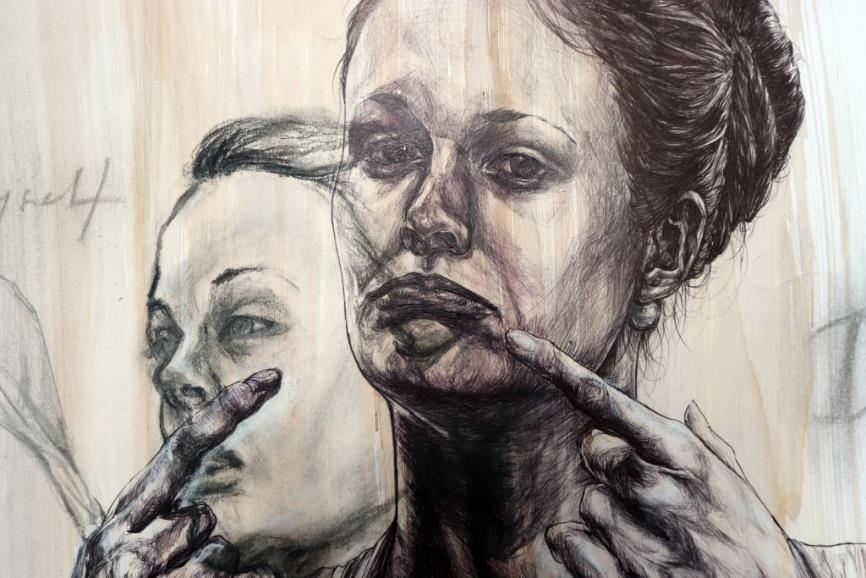
3 minute read
FILM STUDIES - HIGHER LEVEL
FILM STUDIES - HIGHER LEVEL
Aims
• Understand and engage in the processes of interpreting and communicating in film language. • Explore film through personal, theoretical and cultural contexts and understand how these contexts inform and shape filmmaking practice and reception. • Develop and creatively apply a range of filmmaking skills and techniques. • Participate collaboratively in the production of film in order to fulfil intentions.
Course Description:
IB Film Studies is an ideal Group 6 option because of the sheer breadth of creative skills and practical experiences it offers. Pre-production skills include pitching, storyboarding, location scouting and script writing. At the film production stage, students will need to consider sound, lighting, cinematography, actor performance, as well as make numerous logistical and directorial decisions. In post-production, the film will be edited, overdubs added, and music composed. Film making is challenging, which is why 60% of the final mark at HL is awarded for this practical element of the course.
Undoubtedly, Film is the most significant new art form of the last century. It functions as a mass form of entertainment, but also as a powerful ideological tool that should never be viewed passively. With this in mind, students will watch and then deconstruct a rich array of films: from Hollywood, Bollywood, Asia, Europe and all points in between, each offering a different representation of the world. The films chosen for study will offer challenging opportunities for analytical investigation and discussion. Through the pastiche of some of the most famous scenes in film history, students will develop their own filmmaking skills by engaging in the same planning processes as Hitchcock, Eisenstein and Kurosawa.
Requirements:
Students do not need to have studied GCSE Film Studies. They should be very interested in both the process of making and editing films and the analysing of films from a range of genres and historical periods.
Career Path
The most obvious career choices for the student who takes Film Studies are in the media: advertising, web-based video programming, film and television. Moreover, audio-visual literacy is becoming an increasingly important skill and an individual who can make professional video presentations and who understands the way narrative can be shaped to appeal to a specific audience will be in high demand.
5 TERM OVERVIEW
Core Content: *Higher and Standard levels require the same core assessment items to be completed. Higher level students must also produce a collaborative film project.
Term 1
• An introduction to the micro elements of film grammar, such as mise en scene, cinematography, sound, and editing. • An introduction to the macro elements of narrative and genre. • How to make comparative study video essays in Film Studies.
Term 2
• Film in context: this unit will explore the national cinemas of, for example,
Hong Kong, Mexico and Japan. Issues of representation and context will be explored closely. • Film theory and history. • Submission of film analysis essay.
Term 3
• Film Production Skills: treatment and script development. • Making the pitch. • Technical Planning: concept and script. • Visualisation – storyboarding and shot selection.
Term 4
• Principal photography and sound recording. • Submission of Comparative Study
Term 5
• Postproduction: editing, selection of music, titles and effects. • Submission of Production Journal, Collaborative Film Project and Production
Showreel.
Option Topics: Students must, as a minimum, experience working in one role from at least three of the core areas of exploration: Picture, Sound, Assembly, Organisation. They can also work in 2d or 3d animation.
Internal Assessment:
External Assessment:
HL 25% Production Showreel and HL 35% Collaborative Film Project
HL Film Analysis 20% and HL Comparative Study Video Essay 20%
Comparison between this course and A-Level
The IB Film Studies course differs from its A-Level equivalent in some key ways. Firstly, it has a comparative study component. This video essay is a challenging part of the course that enables students to develop their audio-visual presentational skills, a key to success in the world of work. Secondly, the IB Film Production Showreel can be formally presented to university admissions officers. Most importantly, unlike A-Level, there is no end-of-course formal written examination.
Contact for further information:
Mr. Benjamin Astley: benjamin.astley@tts.edu.sg








